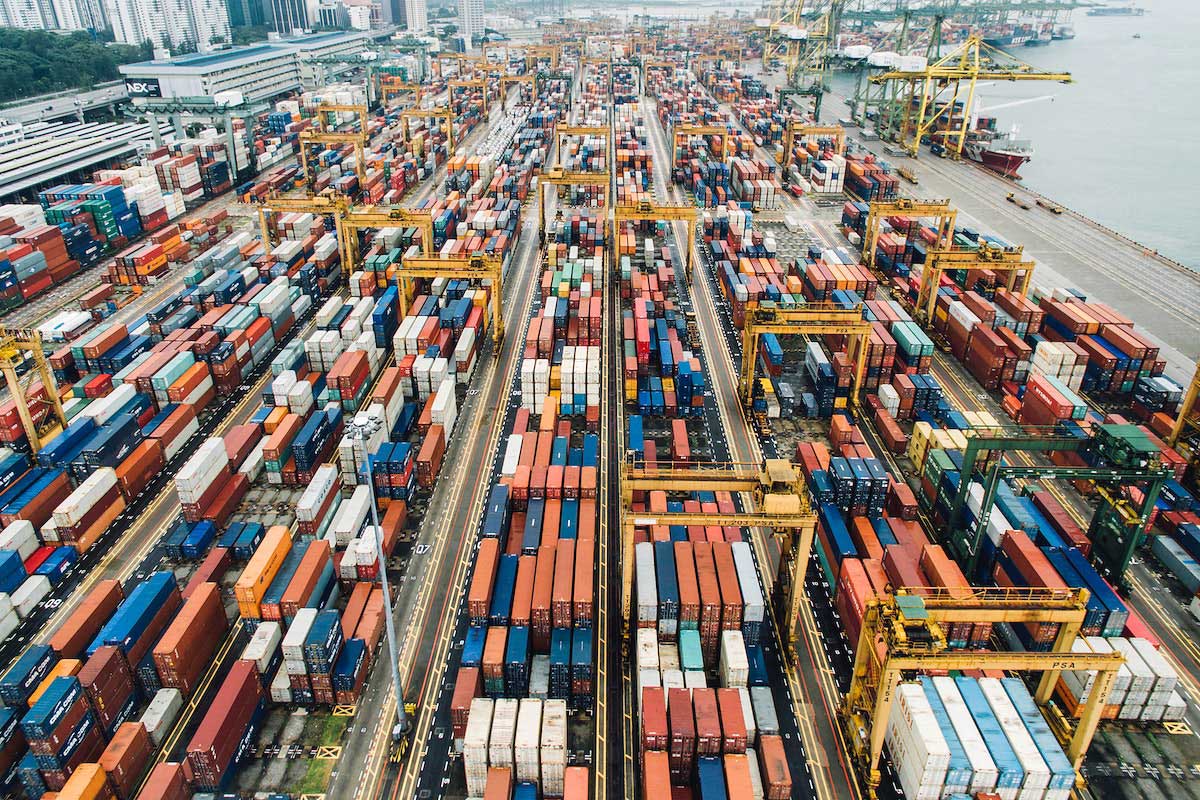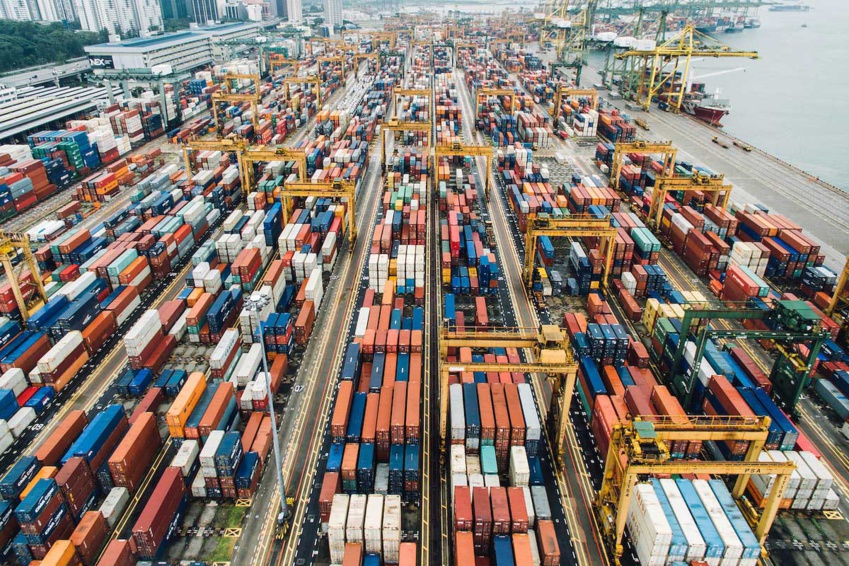Cummins Inc., a global leader in power technology, has been chosen as one of the top 10 projects in the Zero Emission Vessels and Infrastructure (ZEVI) competition. This competition is funded by the UK government and Innovate UK. Cummins Inc. will work with a major UK port and its operators to create and implement clean maritime technology solutions. These solutions aim to reduce carbon emissions and contribute to the overall reduction of the greenhouse gas (GHG) footprint.
The project, which has received £4.4M in total funding, involves Cummins and other stakeholders such as Ocean Infinity, the Aberdeen Harbour Board, and Proman AG. They will work together to introduce a methanol conversion kit for high-horsepower marine internal combustion engines. This kit, designed and built in the UK, will play a crucial role in the transition to cleaner maritime fuels.
The project is expected to be completed in the second quarter of 2025. It aims to reduce carbon dioxide (CO2) emissions by 50% for offshore operations of a vessel. Additionally, it will significantly reduce the levels of nitrogen oxides (NOx), sulfur oxide (SOx), and particulate matter (PM) compared to conventional fuel. All retrofitted dual-fuel engines will meet the International Maritime Organization (IMO) Tier III emission standards.
“Cummins is honored to be selected by the U.K. government in support of this dual fuel project that aligns well with our bridge technologies strategy,” said Mark Bargent, Cummins’ Technology Architecture and Planning Director.
“We remain committed to helping the maritime sector reach its goal of 50% reductions in greenhouse gas emissions by 2050, as required by the IMO. To get there, ship builders need a roadmap for their decarbonization plans.”
“This project, with its focus on the conversion of existing engine installations, offers a seamless transition between today and the future builds of new, cleaner technology ships,” added Molly Puga, Cummins’ Executive Director – Strategy, Product Planning & Digital. “It dismisses the need for a major vessel overhaul and creates an immediate positive impact on carbon emissions reduction in all environmental and operating conditions, ultimately helping the maritime sector meet our global climate needs.”
Ocean Infinity, a member of the consortium, will supply one of its 78m lean-crewed hybrid offshore service vessels from the Armada fleet. This vessel will be used by Cummins to design, develop, and test the dual fuel technology that uses HVO (hydrotreated vegetable oil) and methanol. Earlier this year, Cummins confirmed that all its high horsepower engines for all industrial applications can use unblended paraffinic fuels, also known as renewable diesel, including HVO.
The Port of Aberdeen, aspiring to be Scotland’s leading net zero port, will provide its top-notch facilities and services for vessel testing. Proman AG, with its extensive global experience in methanol production and the development of ultra-low carbon methanol production, will also contribute to the project.
“Ocean Infinity exists to use innovative technology to transform operations at sea for the benefit of people and the planet,” said Ocean Infinity’s Chief Technology Officer Josh Broussard. “This project forms part of our wider future fuels strategy targeting a transition from traditional energy sources to low carbon alternatives to ultimately minimize the environmental impact of our ship operations.”
The project, which has received £4.4M in total funding, involves Cummins and other stakeholders such as Ocean Infinity, the Aberdeen Harbour Board, and Proman AG. They will work together to introduce a methanol conversion kit for high-horsepower marine internal combustion engines. This kit, designed and built in the UK, will play a crucial role in the transition to cleaner maritime fuels.
The project is expected to be completed in the second quarter of 2025. It aims to reduce carbon dioxide (CO2) emissions by 50% for offshore operations of a vessel. Additionally, it will significantly reduce the levels of nitrogen oxides (NOx), sulfur oxide (SOx), and particulate matter (PM) compared to conventional fuel. All retrofitted dual-fuel engines will meet the International Maritime Organization (IMO) Tier III emission standards.
“Cummins is honored to be selected by the U.K. government in support of this dual fuel project that aligns well with our bridge technologies strategy,” said Mark Bargent, Cummins’ Technology Architecture and Planning Director.
“We remain committed to helping the maritime sector reach its goal of 50% reductions in greenhouse gas emissions by 2050, as required by the IMO. To get there, ship builders need a roadmap for their decarbonization plans.”
“This project, with its focus on the conversion of existing engine installations, offers a seamless transition between today and the future builds of new, cleaner technology ships,” added Molly Puga, Cummins’ Executive Director – Strategy, Product Planning & Digital. “It dismisses the need for a major vessel overhaul and creates an immediate positive impact on carbon emissions reduction in all environmental and operating conditions, ultimately helping the maritime sector meet our global climate needs.”
Ocean Infinity, a member of the consortium, will supply one of its 78m lean-crewed hybrid offshore service vessels from the Armada fleet. This vessel will be used by Cummins to design, develop, and test the dual fuel technology that uses HVO (hydrotreated vegetable oil) and methanol. Earlier this year, Cummins confirmed that all its high horsepower engines for all industrial applications can use unblended paraffinic fuels, also known as renewable diesel, including HVO.
The Port of Aberdeen, aspiring to be Scotland’s leading net zero port, will provide its top-notch facilities and services for vessel testing. Proman AG, with its extensive global experience in methanol production and the development of ultra-low carbon methanol production, will also contribute to the project.
“Ocean Infinity exists to use innovative technology to transform operations at sea for the benefit of people and the planet,” said Ocean Infinity’s Chief Technology Officer Josh Broussard. “This project forms part of our wider future fuels strategy targeting a transition from traditional energy sources to low carbon alternatives to ultimately minimize the environmental impact of our ship operations.”


 Cummins, Ocean Infinity, and Proman AG Collaborate on Net Zero Maritime Technology
Cummins, Ocean Infinity, and Proman AG Collaborate on Net Zero Maritime Technology





 Companies
Companies